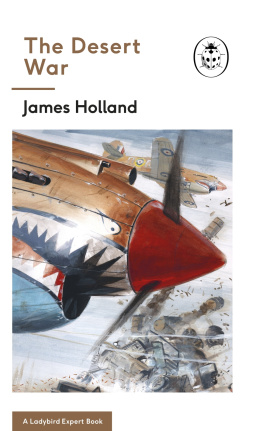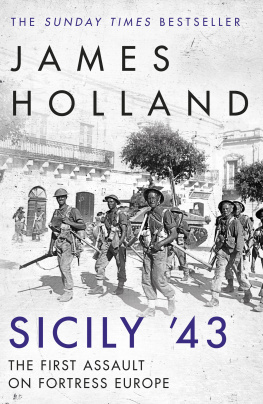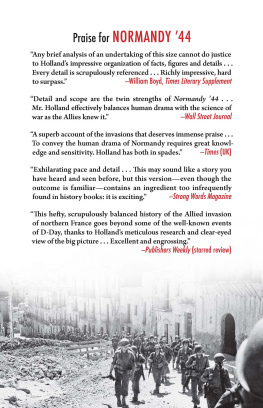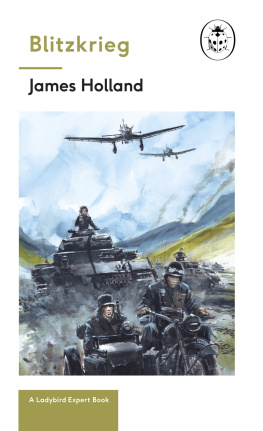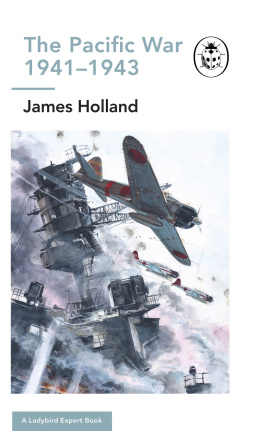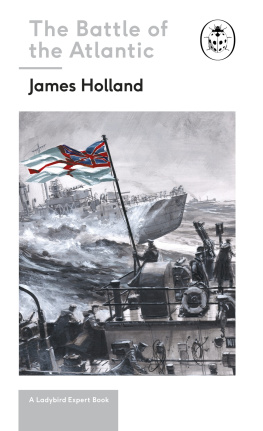James Holland - The Desert War
Here you can read online James Holland - The Desert War full text of the book (entire story) in english for free. Download pdf and epub, get meaning, cover and reviews about this ebook. year: 2018, publisher: Penguin Books Ltd, genre: Non-fiction. Description of the work, (preface) as well as reviews are available. Best literature library LitArk.com created for fans of good reading and offers a wide selection of genres:
Romance novel
Science fiction
Adventure
Detective
Science
History
Home and family
Prose
Art
Politics
Computer
Non-fiction
Religion
Business
Children
Humor
Choose a favorite category and find really read worthwhile books. Enjoy immersion in the world of imagination, feel the emotions of the characters or learn something new for yourself, make an fascinating discovery.
- Book:The Desert War
- Author:
- Publisher:Penguin Books Ltd
- Genre:
- Year:2018
- Rating:4 / 5
- Favourites:Add to favourites
- Your mark:
- 80
- 1
- 2
- 3
- 4
- 5
The Desert War: summary, description and annotation
We offer to read an annotation, description, summary or preface (depends on what the author of the book "The Desert War" wrote himself). If you haven't found the necessary information about the book — write in the comments, we will try to find it.
The Desert War — read online for free the complete book (whole text) full work
Below is the text of the book, divided by pages. System saving the place of the last page read, allows you to conveniently read the book "The Desert War" online for free, without having to search again every time where you left off. Put a bookmark, and you can go to the page where you finished reading at any time.
Font size:
Interval:
Bookmark:

Series 117
This is a Ladybird Expert book, one of a series book of titles for an adult readership. Written by some of the leading lights and outstanding communicators in their fields and published by one of the most trusted and well-loved names in books, the Ladybird Expert series provides clear, accessible and authoritative introductions, informed by expert opinion, to key subjects drawn from science, history and culture.
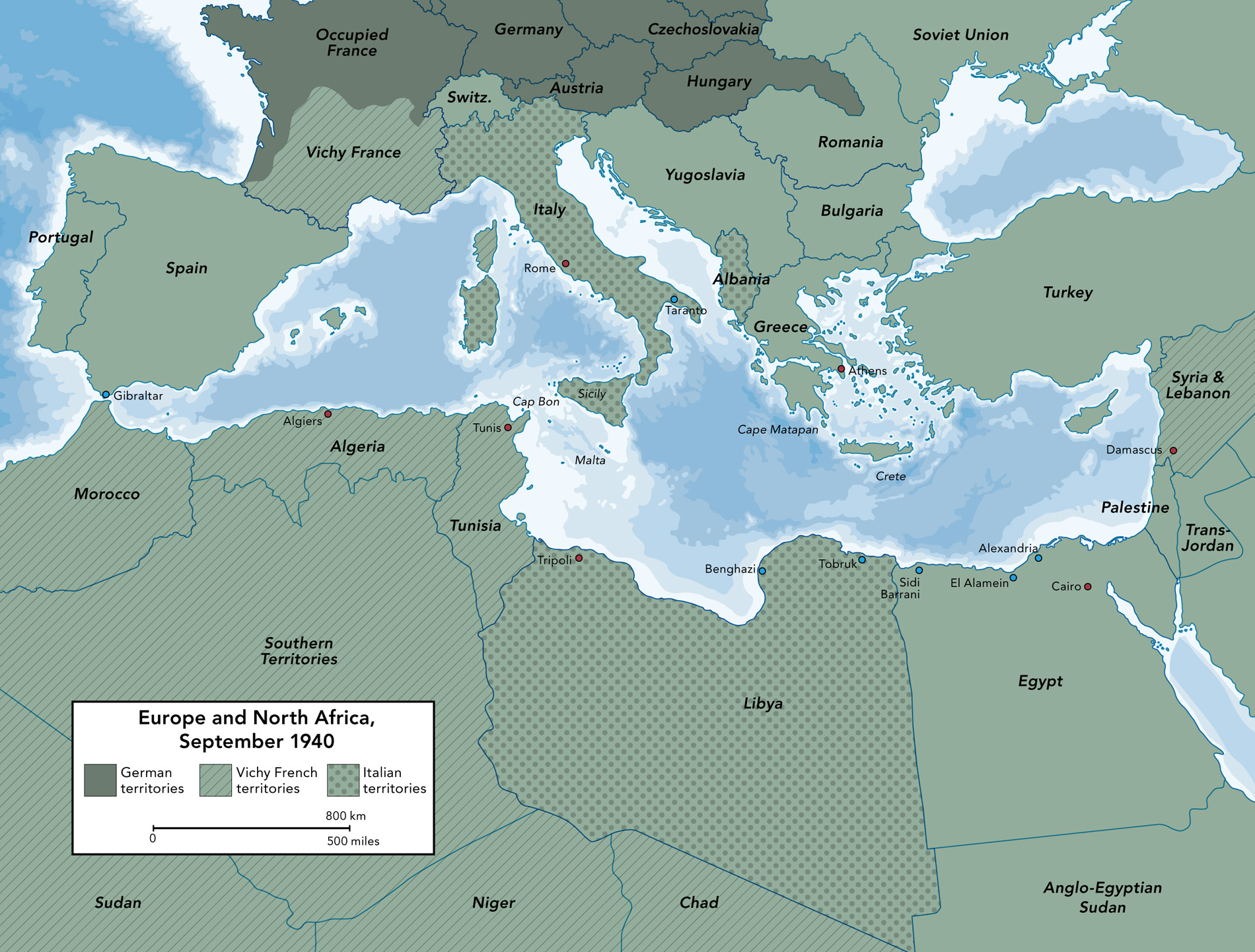
Every effort has been made to ensure images are correctly attributed; however, if any omission or error has been made please notify the Publisher for correction in future editions.
UK | USA | Canada | Ireland | Australia
India | New Zealand | South Africa
Michael Joseph is part of the Penguin Random House group of companies whose addresses can be found at global.penguinrandomhouse.com

First published 2018
Text copyright James Holland, 2018
All images copyright Ladybird Books Ltd, 2018
The moral right of the author has been asserted
Cover illustration by Keith Burns
ISBN: 978-1-405-92982-0
Keith Burns

At 6 p.m. on 10 June 1940, Benito Mussolini, the Fascist dictator of Italy, appeared on the balcony of the Palazzo Venezia in Rome and declared war against Britain and France. Crowds had gathered below but, although a few rabble-rousers had been planted there, for the most part the people remained silent. People of Italy, he shouted, rush to arms and show your tenacity, your courage, your valour! Although plenty of young Italians were filled with excitement, they were the minority. The news of war, noted Mussolinis son-in-law and Foreign Minister, Count Galeazzo Ciano, in his diary, does not arouse much enthusiasm. I am sad, very sad. The adventure begins. May God help Italy.
This was a huge gamble by Mussolini. Italy lacked natural resources and geographically was locked into the Mediterranean. Its industry was underdeveloped, far more so than that of Britain, France or Germany, and nor was it anything like as wealthy. On the other hand, its population was growing, although 47 per cent of the Italian workforce was employed in agriculture, which was also backward.
In May 1939, Mussolini had signed the Pact of Steel with Germany, which began the Axis alliance, even though Italy was dependent on Britain and France for 80 per cent of her seaborne imports. Clearly, Nazi Germany had her own expansionist aims, but so too had Mussolini: he hoped to create a new Roman Empire across the Mediterranean and into Africa; Abyssinia in East Africa, for example, had already been conquered. Overseas expansion offered a solution to his countrys lack of resources, while an alliance with Hitler and the Nazis ensured Germany would not become Italys enemy again as she had been during the last war.
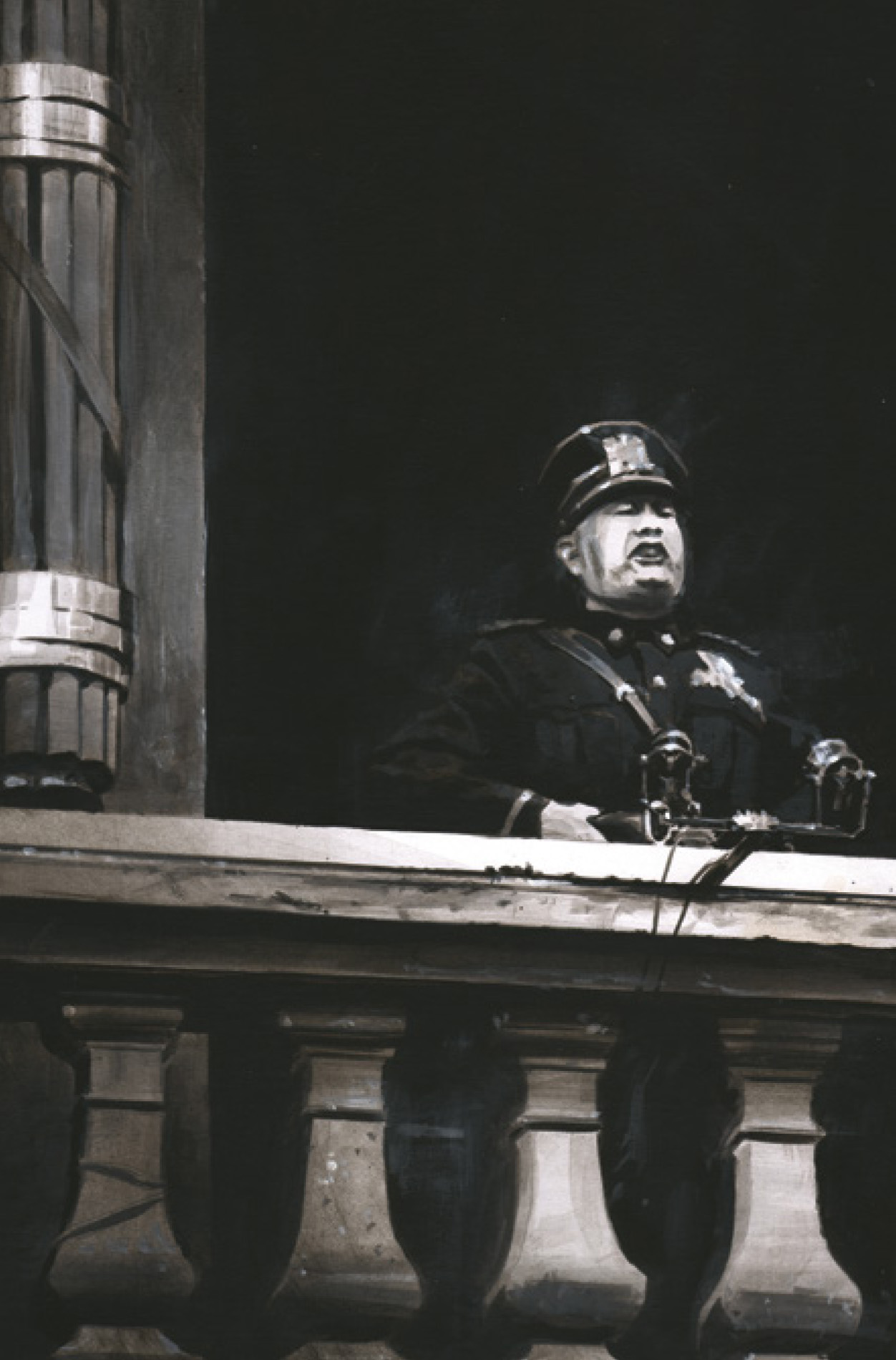 Mussolini on the balcony of the Palazzo Venezia.
Mussolini on the balcony of the Palazzo Venezia. Mussolini had chosen the timing of his declaration of war carefully. His armed forces were weak, but he feared that Germany could dominate all Europe and take on all Frances and Britains overseas possessions in Africa. Italys influence would rapidly dwindle to the point where she became little more than a vassal state.
Therefore he felt he had no choice but to enter the war before the fighting was over. By 10 June, France was all but finished and, as far as Mussolini was concerned, Britain looked likely to follow. In other words, there was now a good chance Italy could gain much for not a huge amount, and the number-one target was Egypt, not directly part of the British Empire but a protectorate in which British armed forces were able to base themselves and control the vital Suez Canal that linked the Mediterranean to the Indian Ocean.
The trouble was, for all Fascist Italys military parades and chest-puffing, any impression of military strength was a charade. The lack of wealth and resources was a big problem, but so too was excessive bureaucracy and the low calibre of senior leadership. The Regio Esercito Royal Army, as Italy still had a king, despite Fascism was short of tanks, artillery, vehicles, rifles and just about everything needed for modern warfare. The Regia Aeronautica Royal Air Force was also filled with outmoded aircraft and inept commanders, while the Regia Marina Royal Navy the most modern arm, lacked any aircraft carriers or any kind of radar and, most of all, experience.
There was also a pointed lack of enthusiasm for war from Italys military commanders. Only Mussolini himself, it seemed, had much appetite for a scrap with the British.
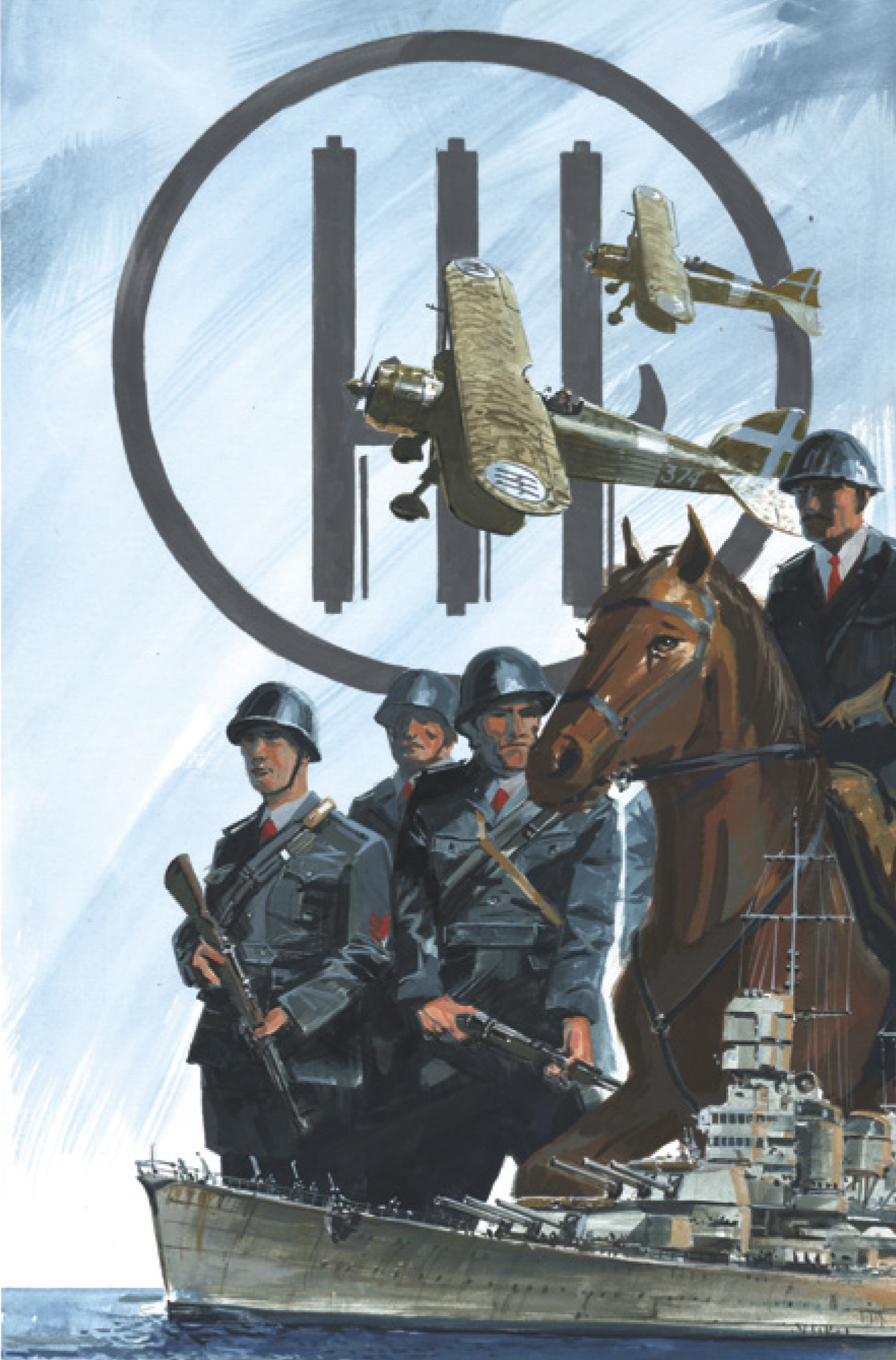
From 11 June onwards, Italian bombers began half-heartedly attacking the tiny but strategically vital British island of Malta in the very heart of the Mediterranean. The island was woefully under-defended with just a handful of Gloster Gladiator biplanes and almost no anti-aircraft guns, but the Italians never pressed home their advantage. The British swiftly reinforced the island. Within ten days, Hurricanes had begun arriving and by the end of the year it was bristling with anti-aircraft guns as well as bombers and submarines. Malta had become a major thorn in the Italians side and an offensive base from which the British could attack Axis convoys heading to Libya.
Then, in July 1940, the Regia Marina ventured out of port and clashed with the British Mediterranean Fleet, receiving a bloody nose for its trouble. Finally, on Friday, 13 September, after continual pressing from Mussolini, Marshal Rodolfo Graziani reluctantly ordered the Italian Tenth Army to cross the Libyan border into Egypt. It advanced 40 miles to Sidi Barrani then halted.
The armed forces were mired in labyrinthine bureaucracy. On the outbreak of war, the Ministry Secretariat, the mechanism of government, had agreed to extend its working day to 4 p.m., but by July a return to the old time of 2 p.m. had been proposed and agreed. Marshal Pietro Badoglio, the Chief of Staff and most senior Italian soldier, was sixty-eight years old and rooted in the past. When handed a perceptive analysis of German tactics, he said, Well study it when the war is over. Command was top-heavy, training rigid and initiative stifled from top to bottom. The tank is a powerful tool, said General Ettore Bastico, another senior commander, but let us not idolize it. Let us reserve our reverence for the infantryman and the mule.
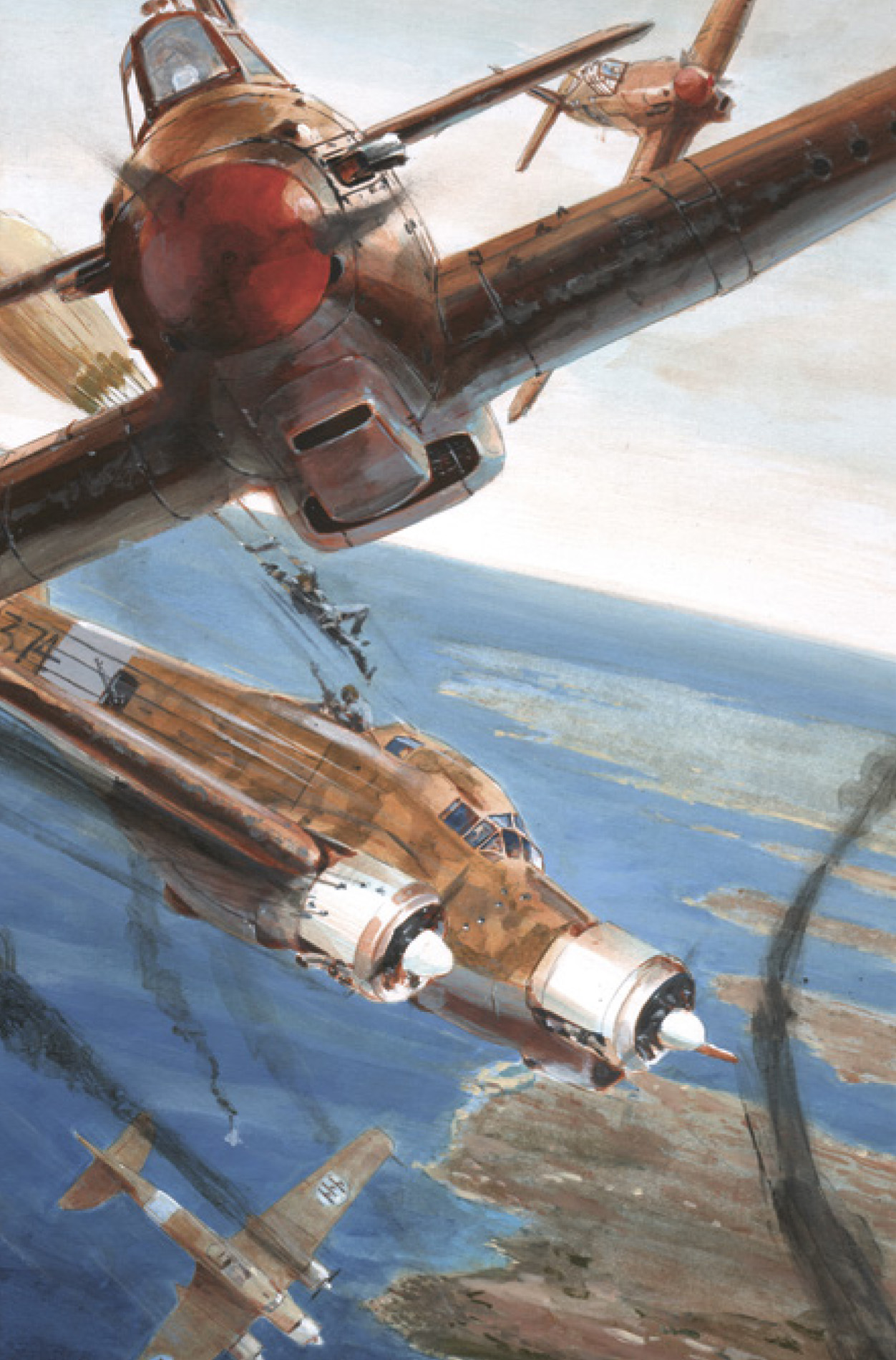 An Italian SM-79 Sparviero being shot down by RAF Spitfires over Malta.
An Italian SM-79 Sparviero being shot down by RAF Spitfires over Malta. Britains determination to keep fighting and her victory in the Battle of Britain was throwing Mussolinis war plans awry. The Italian Navy was proving feckless, so too was Grazianis Tenth Army in Egypt, and Italy was already running short of food. A mass demobilization of some 750,000 men was ordered because many of the peasant soldiers were urgently needed back on the land.
Next pageFont size:
Interval:
Bookmark:
Similar books «The Desert War»
Look at similar books to The Desert War. We have selected literature similar in name and meaning in the hope of providing readers with more options to find new, interesting, not yet read works.
Discussion, reviews of the book The Desert War and just readers' own opinions. Leave your comments, write what you think about the work, its meaning or the main characters. Specify what exactly you liked and what you didn't like, and why you think so.

